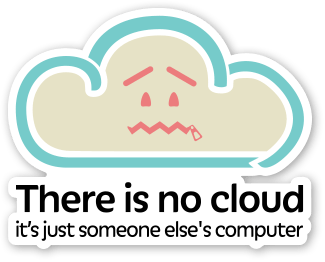Web Concepts
Welcome!
Tell us about yourself.
- Who are you?
- What do you hope to get out of the class?
What we'll cover
-
Terms & technologies
- Acronyms, the world wide web, languages/libraries/frameworks
-
Building a web site
- Considerations, UX & IA, tools
-
Web development professionals
- Team structure, hiring one, becoming one
What to expect
- This is a survey of a very broad topic
- Get a sense of what you'd like to know more about
- I don't know everything, and neither will you
- Have fun! (and ask questions)
Terms & Technologies
Terms
HTML: Hyper Text Markup Language - The code structure used to convey the content of a web site
CSS: Cascading Style Sheets - A language used to describe the presentation of the content
JavaScript: The programming language that is used in all of your browsers. It makes sites interactive.
Git: Version control and collaboration tool. It's kind of like google docs.
What is the world wide web?


Home and daily life of a web site
A typical web site will live or is 'hosted' on a web server. Web servers are often large computers connected to a network.
- Type a web site address into the address bar
- DNS connects you to the hosting server
- The files are then sent back to your computer for display
- Sometimes code must be compiled before being sent back to you.
Clients vs. Servers
Clients make requests, servers fulfill them (usually).
For our web discussions, client = browser, but search engine crawlers, command line interfaces, and other applications can also behave as clients.
While any type of computer can be used as a server, they are generally larger and more powerful than others.
Parsing languages & media
Client-side:
- HTML
- CSS
- JavaScript
- Flash (with plugin)
- Images
Server-side:
- PHP
- Perl
- Python
- Ruby
- .Net
- Java
- ColdFusion
- Databases
Building a web site
Considerations before building
- What is the purpose of the site?
-
Hosting and a domain name
- Domain name registration should not cost more than $15/yr
- Hosting should not cost more than $50/yr
- Hosting choices may depend on supported server-side tech
- Whether to build it yourself or hire someone
What languages to use
That depends...
- HTML and CSS will be used
- JavaScript may be used for interactivity
- Server-side languages will likely be used for any data storage or retrieval
Tools of the trade
To build your web site, you will probably need:
- A simple text editor or code editor such as Atom, SublimeText, Notepad++, or TextWrangler to write your code. Many can be found for free.
- A web browser such as Chrome, Firefox, or Safari to test your code. All popular modern browsers are free.
Web development professionals
Meet the web team
-
Front end
- User Experience (UX) Designer
- Graphic Designer
- Web Developer
-
Back end
- Server Admin
- Database Admin
- Software Engineer
-
Overall
- QA Engineer
- Project Manager
How to hire a developer
Remember the three Rs:
- References: Talk to people who have worked with the developer before. Were they prompt? Pleasant? Forthright?
- Requirements: Can they do the work that needs to be done. Ask for samples of their prior work and ask exactly which parts of the process they were responsible for. Design? UX? DB architecture? QA?
- Reality: If it sounds too good to be true, it probably is. This website will be a reflection of you, either personally or professionally. Hire someone you feel will be invested in a job well done.
How to be hired as a developer
- Be curious, a problem solver, and intrepid
- Build things. For yourself, if no one will pay you
- Through all of this, learn your craft and how things work
- Debugging!